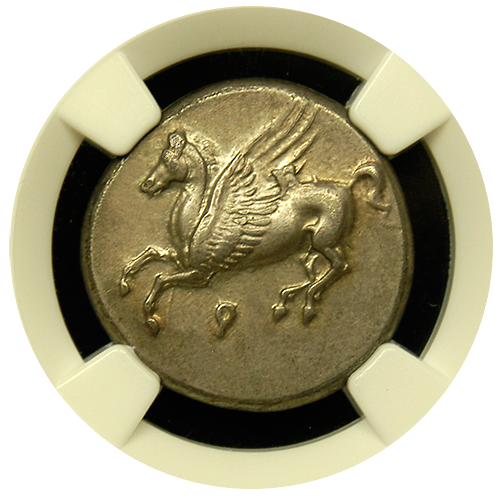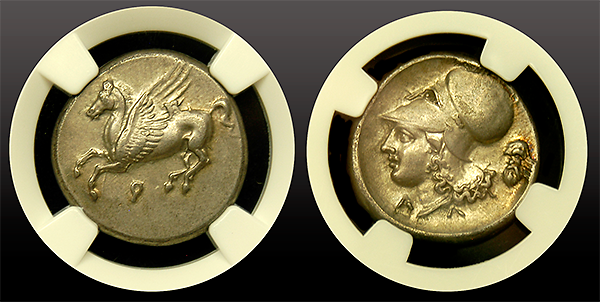A Glimpse into the 4th Century BC
Exploring Ancient Corinthia, an ancient city-state in Greece, holds a unique place in history. It was situated in a region known as Corinthia, a narrow stretch of land that connected the Peloponnese to mainland Greece. This city flourished as a hub of culture, trade, and politics in the fourth century BC. Furthermore, it boasted a wealth of remarkable individuals and events that left an enduring mark on history.
Location and Geographical Context
Before we delve into the significant people and historical events, let’s set the stage by exploring the geographical context. Corinth’s strategic location played a pivotal role in its prosperity during the 4th century BC. Positioned on a narrow strip of land with two major harbors, Lechaion and Cenchreae, the city became a vital hub for maritime trade. It was nestled between two prominent hills, Acrocorinth and Acro-Atticus. Therefore, it offered defensive advantages and picturesque views of the surrounding region.
Corinthia’s geographical location played a pivotal role in its history, facilitating trade between the Greek mainland and the Peloponnese. In fact, its unique position contributed to the city’s economic prosperity and its role as a powerful maritime force in the Mediterranean.
Historical Significance of Corinth
The 4th century BC was a time of immense historical significance for Corinth. The city had earned a reputation as a formidable naval power and was at the forefront of regional politics. During this period, Corinth was a prominent member of the Hellenic League. To clarify, they were part of a coalition of Greek city-states formed in response to the rise of Macedon and the looming shadow of Philip II.
Under the leadership of figures like Timoleon, a Corinthian statesman and general, the city played a significant role in Greek politics. Timoleon is remembered for his campaigns against tyrants in Sicily and his contributions to the restoration of democracy in various Greek cities. Most importantly, his efforts reflected Corinth’s commitment to the ideals of democracy and its desire to promote stability.
Prominent Figures in the 4th Century BC
Let’s take a closer look at some of the prominent individuals who shaped Corinth’s history during the 4th century BC:
- Timoleon – As mentioned earlier, Timoleon was a central figure in Corinth during this era. Also, Timoleon was a Corinthian statesman and general. His military campaigns in Sicily and dedication to democratic principles have solidified his place in history.
- Alexander of Corinth – Not to be confused with Alexander the Great, Alexander of Corinth was a prominent philosopher of his time. Besides, he contributed to the fields of ethics and metaphysics, and his teachings influenced many philosophers who followed him.
- Dionysius I of Syracuse – While not originally from Corinth, Dionysius I ruled over Syracuse and played a crucial role in the city’s interactions with other Greek states. His reign and military campaigns had far-reaching effects on the region.
The Cultural Flourish of Corinth
In the 4th century BC, Corinth was not merely a hub for trade and politics; it was also a vibrant center of culture and intellectual pursuits. The city’s renowned philosophers, artists, and scholars gathered to exchange ideas, fostering an environment of creativity and learning.

One of the intriguing aspects of Corinth’s cultural milieu during this era was its production of ancient coins. These coins were not just tokens of trade; they were artistic masterpieces that revealed the city’s values, beliefs, and self-perception. The intricate designs on these coins, often minted in silver, reflected Corinth’s multifaceted identity.
The obverse of Corinthian coins frequently featured various symbols, including the city’s iconic Pegasus, a mythical winged horse. This symbol was emblematic of Corinth’s cultural and artistic prowess, serving as a testament to the city’s creativity and innovation. Corinthian coins also bore the images of deities, emphasizing the city’s religious significance.
These coins were not merely a medium of exchange but also a canvas upon which Corinthian identity was vividly illustrated. The detailed craftsmanship and artistic expression on these coins showcased the city’s multifaceted culture, reflecting its artistic, religious, and intellectual vibrancy.
Alexander of Corinth: A Philosophical Luminary
Among the influential figures of this era, Alexander of Corinth stands out as a philosopher of great repute. His philosophical contributions endured beyond his lifetime and influenced the growth of ethical and metaphysical philosophy. Alexander delved into the exploration of the self, examining questions about human nature and the concept of virtue. His ethical teachings continue to influence modern philosophy, ensuring that his legacy endures.
The Isthmian Games: A Cultural Extravaganza
The 4th century BC also saw the continued celebration of the Isthmian Games, an event held near Corinth. These games, akin to the more famous Olympic Games, showcased athletic prowess and artistic talents. Athletes, poets, and musicians from across the Greek world gathered to compete and display their abilities.
The Isthmian Games provided a platform for cultural exchange and artistic expression. These competitions highlighted the importance of physical fitness and mental acuity in Corinthian society. Moreover, they emphasized the values of discipline and the pursuit of excellence.
Corinth’s Influence on the Wider Greek World
While Corinth’s geographical location lent itself to being a trade and naval power, the city’s cultural contributions should not be underestimated. The philosophers and academics who congregated at Corinth had a significant influence on ancient Greece’s intellectual climate. Their ideas and discussions helped shape the philosophical traditions that followed in the Hellenistic and Roman periods.
Corinth’s rich cultural tapestry was woven into the broader fabric of Greek culture, influencing art, philosophy, and scholarship in the ancient world. The city’s legacy extends far beyond its economic and political prowess.
In Conclusion
Corinth in the 4th century BC was a city of multifaceted significance. Its strategic location facilitated economic prosperity and played a crucial role in Greek politics. Prominent figures like Timoleon and Alexander of Corinth left indelible marks on the city’s history. Particularly, the Isthmian Games highlighted the cultural achievements of the time. Moreover, Corinth’s intellectual atmosphere helped shape philosophical thought for generations to come.
By exploring Ancient Corinthia, we’ve gained insights into the dynamic and interconnected aspects of ancient Corinthia. The city’s multifaceted contributions serve as a testament to the enduring influence of culture, philosophy, and athleticism on our understanding of the ancient world.
Source link


